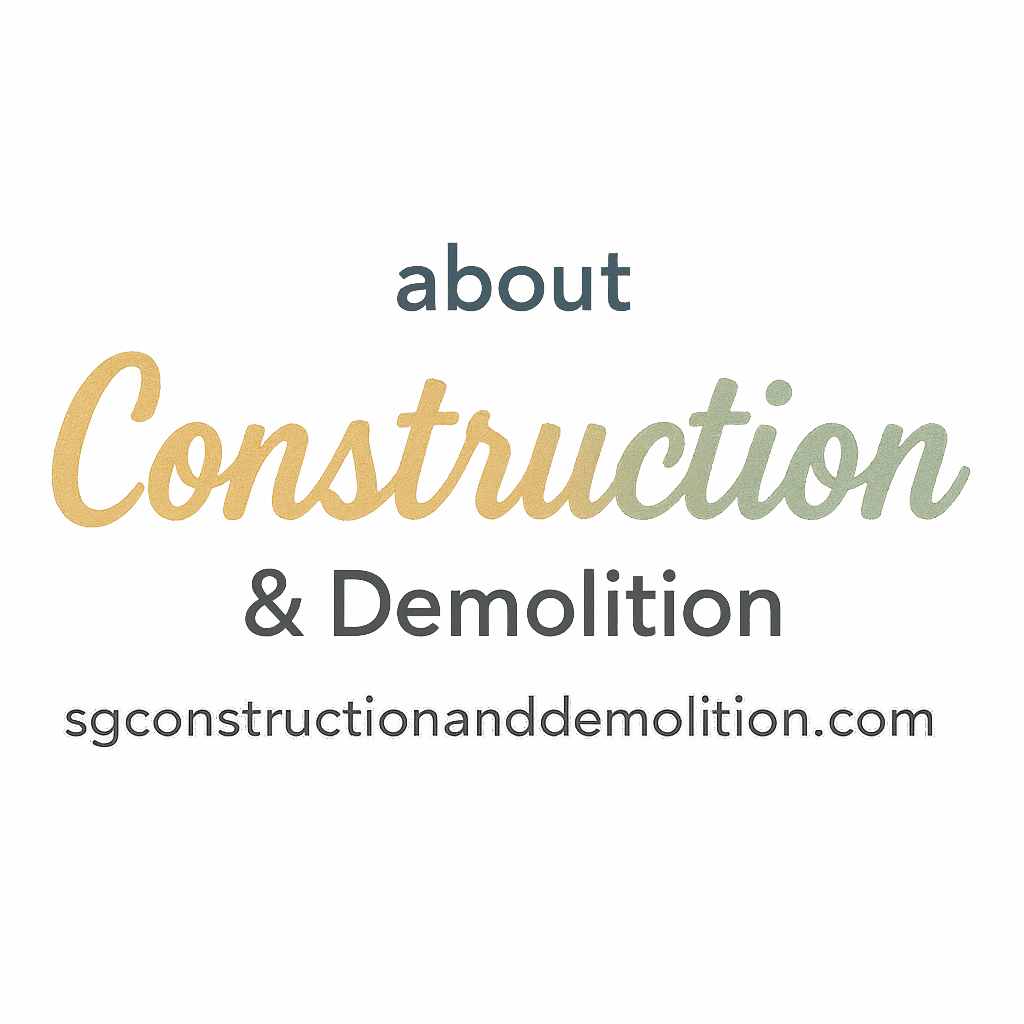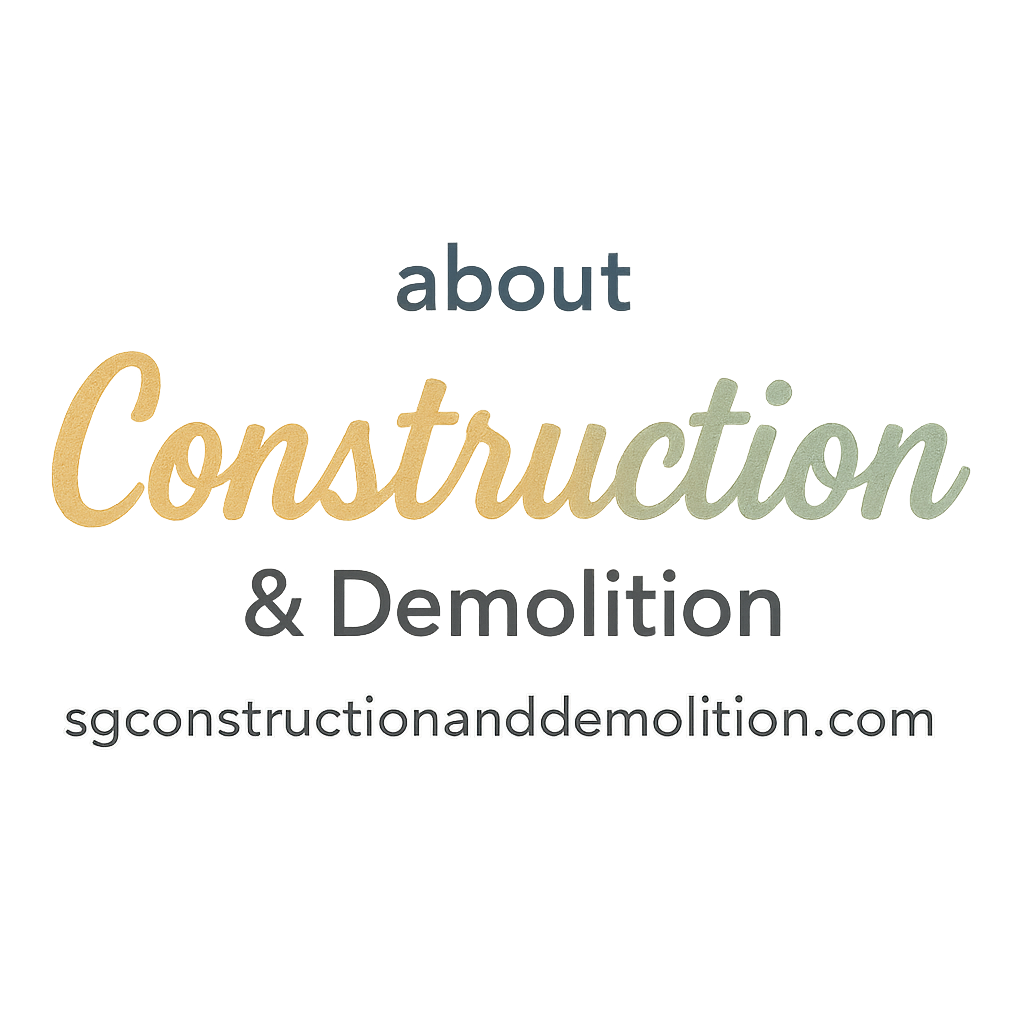Introduction: Why Equipment Rental Makes Sense for Beginners
So, you’re stepping into the world of construction and wondering where to start with all the gear you’ll need? Renting construction equipment can be a total game changer—especially for beginners. Why? Because buying heavy machinery upfront is like buying a racecar when you’ve just got your learner’s permit. It’s expensive, risky, and often unnecessary.
Renting gives you flexibility, saves money, and lets you test out different machines without the full commitment. But here’s the kicker—if you’re not careful, renting the wrong way can cost you more than it should. That’s why we’ve put together these 5 construction equipment rental tips for beginners to help you get started on the right track.
👉 Related: Construction Basics – Your foundation guide to building knowledge
Tip 1: Understand Your Project Scope
Know the Job Requirements
Before you even start browsing for backhoes or excavators, pause and define your project. Are you digging, demolishing, grading, or lifting? Every job has its own gear—and guessing wrong here means wasted money and time.
Match the Equipment to the Task
Using a bulldozer for a job that only needs a skid-steer loader? That’s like using a sledgehammer to hang a picture frame. Not only is it overkill, but it’s inefficient and could even cause damage.
Check out this detailed page on tools and equipment to see which machines match which tasks.
Think Ahead for Multiple Phases
Will your project evolve? Maybe you’ll start with demolition and move into foundation work. Map out the full timeline and identify all the equipment you’ll need upfront. That way, you can schedule rentals strategically instead of scrambling later.
Tip 2: Choose the Right Equipment Rental Company
Look for Transparent Pricing
Some rental companies offer “too good to be true” daily rates—and they usually are. Ask about extra fees, delivery charges, damage waivers, and hourly overages. It’s like booking a flight; what looks cheap now could cost double with hidden fees.
Check for Maintenance and Support
Does the rental company regularly maintain their equipment? Do they offer emergency support if something breaks down mid-job? These things matter. Equipment downtime = lost productivity and a busted budget.
See more about planning and safety to avoid those expensive surprises.
Read Reviews and Ask Around
Ask colleagues, check Google reviews, and browse community forums. A company’s rep is usually built on reliability, customer service, and fair pricing. Pro tip: if a company offers full customer onboarding and operation demos, that’s a green flag.
👉 Visit our Beginners Tag Page for more entry-level construction insights.
Tip 3: Learn About the Equipment Before You Rent
Use Online Resources to Educate Yourself
Don’t walk into a rental office blind. Hop on YouTube, read manuals, and explore our Construction Basics guide. Learn how each piece of equipment works, what attachments it supports, and its limitations.

Ask the Rental Company for Demos
A good rental provider will walk you through basic functions or even offer a quick demo. Take advantage of that. You wouldn’t drive a new car off the lot without knowing how to start it, right?
Understand Safety and Operation Basics
Never underestimate safety. Read up on common myths and misconceptions and safety rules specific to each machine. Many beginners skip this part—and that’s when accidents happen.
Explore our Power Tools and Equipment Tags to dive deeper.
Tip 4: Focus on Safety and Compliance
Follow Site Safety Protocols
Even if you’re working a small residential project, safety rules still apply. Wear proper PPE, respect barriers, and follow posted guidelines. For large sites, make sure your rentals meet planning and safety standards.
Inspect Equipment Before Use
Just like you’d check a rental car for dings and scratches, do a pre-use inspection of rented machinery. Look for fluid leaks, tire wear, and damaged parts. Take photos if necessary—just in case there’s a dispute later.
Get Proper Training If Needed
Many tools look simple, but misuse can lead to injury or property damage. If you’re unsure, invest a bit in a safety or operator course. It’s worth every penny.
👉 Explore Demolition Techniques if your project involves teardown work.
Tip 5: Budget Smart and Plan Efficiently
Avoid Downtime with Scheduling
Every extra day with a rental costs you more—even if the machine is just sitting there. Plan your schedule tightly. Have materials and labor lined up before the equipment arrives to keep things moving.
Watch Out for Hidden Costs
Late returns, fuel charges, cleaning fees—these can pile up fast. Read the fine print on your rental agreement and clarify anything unclear.
Also, check out articles tagged under project management for help keeping your job site efficient.
Return Equipment On Time
This sounds basic, but it’s often overlooked. Many rental companies charge hefty late fees. Set reminders. Finish early if you can. Some even offer discounts for early returns.
For more ways to stay ahead, visit our Smart Tech Trends and Innovation pages.
Conclusion
Renting construction equipment can be the smartest move for beginners—but only if you go in prepared. Understand your job, choose the right rental partner, learn about the tools, respect safety rules, and stay on budget. These five tips are your blueprint to a successful first-time experience with construction equipment rentals.
Ready to start your project the smart way? Explore more expert guides and insights on SG Construction and Demolition.
FAQs
1. What’s the best type of construction equipment to rent first as a beginner?
Start with versatile machines like skid-steer loaders or mini-excavators. They’re easy to operate and useful for a wide range of tasks.
2. How much does it cost to rent construction equipment per day?
Costs vary by machine type and location, but expect anywhere from $150 to $1,000+ per day. Always confirm the total cost, including hidden fees.
3. Can I rent construction equipment without certification?
For smaller tools, yes. But for larger equipment like cranes or forklifts, some states or companies require training or certification.
4. Is it better to rent hourly, daily, or weekly?
It depends on the length of your project. Daily is common, but if your job spans several days, weekly rates often save money.
5. What should I do if the rented equipment breaks down?
Contact the rental company immediately. Most reputable providers offer replacement or repair within 24 hours.
6. Are there eco-friendly rental options?
Yes! Look for electric or hybrid models. Check out our post on Green & Smart Construction Trends for more ideas.
7. Where can I find beginner-friendly rental guides?
Right here! Browse our Beginners, Steps, and Methods tag pages for more resources tailored for you.


